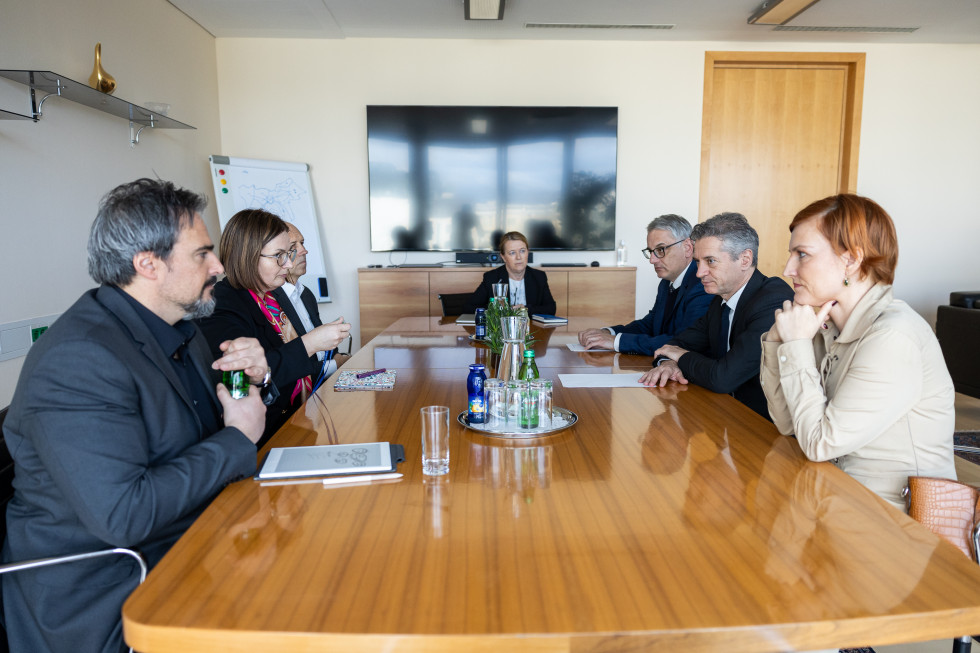By: G. B.
“The Prime Minister, Dr Robert Golob, together with the Minister of Culture, Asta Vrečko, and the Minister of Economy, Matjaž Han, met today with representatives of the newspaper-publishing houses Delo, Dnevnik, and Večer. They continued discussions on the situation of printed media in Slovenia,” reads the news published by the government on its website on January 18th, last Thursday.
To this dull sentence, they did not add any details, just two photos from the meeting. As if discussions with representatives of the three largest media houses were secret and not in the public interest. Except that government representatives met with them.
In this context, it is worth recalling the important fact that changes to the media law apparently foresee a return to the times when all three Slovenian newspapers (Delo, Dnevnik, and Večer) were still the organs of the Socialist Alliance of the Working People (SZDL), meaning regime transmissions. This means that they were financed with taxpayer money even then. Well, the only difference is that the newspaper company Delo has been publishing Slovenske novice since 1991. Primorske novice no longer comes out every day recently, and the newspaper Finance has discontinued its print edition and remains present only online. Similar to Žurnal24 a few years ago.
Otherwise, trends for printed media, especially for daily newspapers, are quite unfavourable as circulation declines, but the long-standing politicisation of editorial policies of newspapers has also played a role. The editorial policy of these newspapers has never been right-wing – which would not be problematic in itself if they knew how to offer added value, especially in the era of information technology. Years ago, there were talks about financial difficulties of newspapers, suggesting that these newspapers still part of the “family silver” might need financial incentives from the budget. For example, the Croatian Vjestnik, a once widely read newspaper during socialism, ceased publication in 2012. Maribor’s Večer moved from its former legendary building to smaller premises, which are even owned by the Mayor of Maribor, Saša Arsenovič.
Now the question arises whether they also discussed the media “coverage” of the suspension of the Commission for the Prevention of Corruption proceedings against Prime Minister Robert Golob at the meeting.

